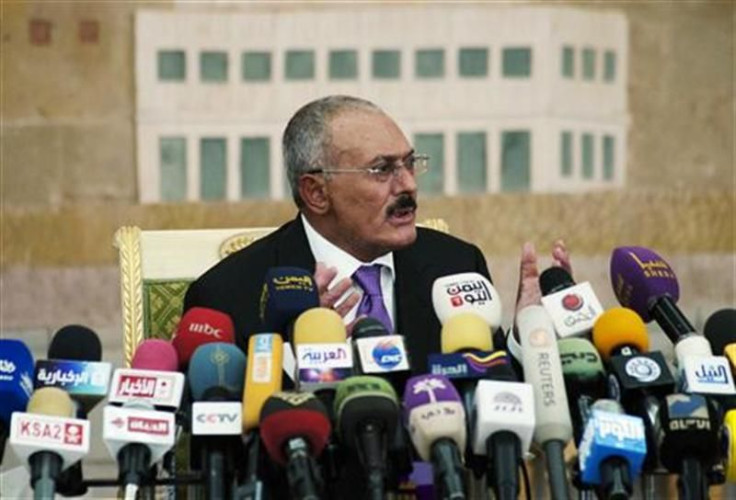Yemen's President Saleh Cancels U.S. Visit

Urged by ruling party members, Yemen's soon-to-be ex-President Ali Abdullah Saleh has cancelled a trip to the United States.
To date, we still have a visa application from President Saleh at our embassy in Sanaa. It hasn't been withdrawn. We also have not made a decision one way or another with regard to that visa, said State Department spokeswoman Victoria Nuland.
The embattled leader was expected to travel to the U.S. for medical treatment related to an assassination attempt in June when militants tossed a bomb into his presidential compound in Sanaa.
After months of protests against his 33-year reign, Saleh has agreed to step down from power, and party members are insisting that he stay in Yemen for the time being to help ease civic tensions, according to CNN. Saleh has signed presidential powers over to Abd Rabbuh Mansur al-Hadi, his vice president, who will rule until elections are held in February.
Saleh signed this accord in front of the world. The United States and the international community are committed to holding him accountable to the agreement, National Security Council spokesman Tommy Vietor told the Agence France Presse news agency.
At the moment, Saleh's departure doesn't necessarily mean as much for the Yemeni people as Hosni Mubarak's resignation meant for Egyptian or the death of Moammar Gadhafi did for Libyans.
Despite their success in forcing Saleh to finally leave, Yemenis of all political, ideological, and religious backgrounds are rightly hesitant to declare victory, Daniel R. DePetris, Senior Associate Editor of the Journal on Terrorism and Security Analysis, said on Friday.
The accord that Saleh signed will not hold him accountable for the thousands of deaths that occurred during 11 months of protests, and demonstrators have again taken to the streets to shout for justice.
Not only will Saleh stay in Yemen, where he believes he will play a helpful role in transitioning to the new government, but his family is still in control of certain military organizations. Saleh's son and one-time heir-apparent, Ahmed Ali Saleh, runs the Republican Guard and one of his nephews oversees the Central Security Forces and counter-terrorism agency.
Unfortunately, a political comeback is exactly what Saleh may be hatching, DePetris added. The Gulf Cooperation Council agreement does not permit him to eventually return to Yemeni political life as an opposition candidate. Saleh himself has since indicated in his public statements that he will indeed return to Yemen in some political capacity -- Because I won’t leave by people and comrades he once reportedly said.
Meanwhile, extremist groups are trying to gain power during Yemen's period of political uncertainty, including a branch of al-Qaida in the south. On Wednesday, five masked Islamic militants stormed a hotel that served alcohol in the city of Aden and opened fire. The gunmen then poured gasoline on the carpets and lit the hotel ablaze. Two were killed and 20 wounded in the attack, according to The Associated Press.
© Copyright IBTimes 2025. All rights reserved.





















